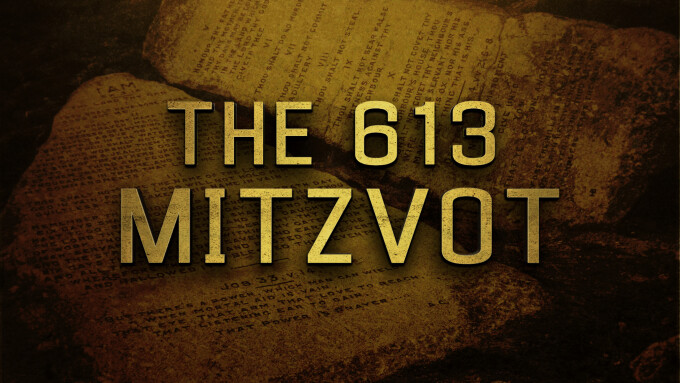The 613 Mitzvot: 26-30

We are often asked to do teachings on the 613 commandments found in the Jewish faith. Understandably, such a teaching or teaching series would be an immense undertaking. However, we thought we may be able to go through it, at least in part, in our blogs. This is an ongoing blog series that we will do at different times without any real schedule planned. We will not be going into great depth in this series.
The format for these blog posts will be simple. We will cite a traditional rabbinic commandment as found in the AENT (Aramaic-English New Testament), provide the Scripture that it is supposed to be based from, indicate if we agree that it is a commandment we can do today or if it is one that cannot apply today and then why or why not. Then we will give a few notes or thoughts as to why believe it can or cannot be applied today. Last time we looked at commandments twenty-one through twenty-five, this week we will take a brief look at five more.
Commandment: On the Cohanim (Priests) Blessing Israel
Numbers 6:23 (ESV)
““Speak to Aaron and his sons, saying, Thus you shall bless the people of Israel: you shall say to them,”
Notes:
An established Earthly Levitical priesthood is not currently organized and available to carry out this commandment. So, no, we do not believe this one can currently be followed.
Commandment: On the Showbread Before the Ark
Exodus 25:30 (ESV)
“And you shall set the bread of the Presence on the table before me regularly.”
Notes:
A built temple does not currently exist till the 1000 year reign. Once it does, the criteria will exist again (Ez. 40-48) to carry out this commandment. However, at this time, no Earthly Levitical priesthood is established and no temple or tabernacle is in place to carry out this commandment.
Commandment: On Burning the Incense on the Golden Altar twice daily
Exodus 30:7 (ESV)
“And Aaron shall burn fragrant incense on it. Every morning when he dresses the lamps he shall burn it,”
Notes:
As the previous commandment, this is another that we do not believe can be properly obeyed today. A built temple does not currently exist till the 1000 year reign. The criteria will exist again (Ezekiel 40-48) to carry out this commandment. An established Earthly priesthood is not currently organized and available to carry out this commandment. For us to attempt to do so as things are would be doing them our own way and not His way.
Commandment: On the perpetual fire on the Altar
Leviticus 6:13 (ESV)
“Fire shall be kept burning on the altar continually; it shall not go out.”
Notes:
As with the previous commandments, this is another that we do not believe can be properly obeyed today. A built temple does not currently exist till the 1000 year reign. The criteria will exist again (Ezekiel 40-48) to carry out this commandment. An established Earthly priesthood is not currently organized and available to carry out this commandment. For us to attempt to do so as things are would be doing them our own way and not His way.
Commandment: On removing the ashes from the Altar
Leviticus 6:10-11 (ESV)
"And the priest shall put on his linen garment and put his linen undergarment on his body, and he shall take up the ashes to which the fire has reduced the burnt offering on the altar and put them beside the altar. Then he shall take off his garments and put on other garments and carry the ashes outside the camp to a clean place."
Notes:
As with the previous commandments, this is another that we do not believe can be properly obeyed today. A built temple does not currently exist till the 1000 year reign. The criteria will exist again (Ezekiel 40-48) to carry out this commandment. An established Earthly priesthood is not currently organized and available to carry out this commandment. For us to attempt to do so as things are would be doing them our own way and not His way.
We hope this has helped bring a little clarity to the sixth set of 5 commandments and their applicability to our lives today, at least as we currently understand them. Aside from ourselves, keeping the cultural understanding and Scriptural context are our greatest obstacle to understanding, and thus obeying, the ways of our Creator. Each day we must choose whether to obey or disobey thereby choosing whom we are serving.
Shalom
